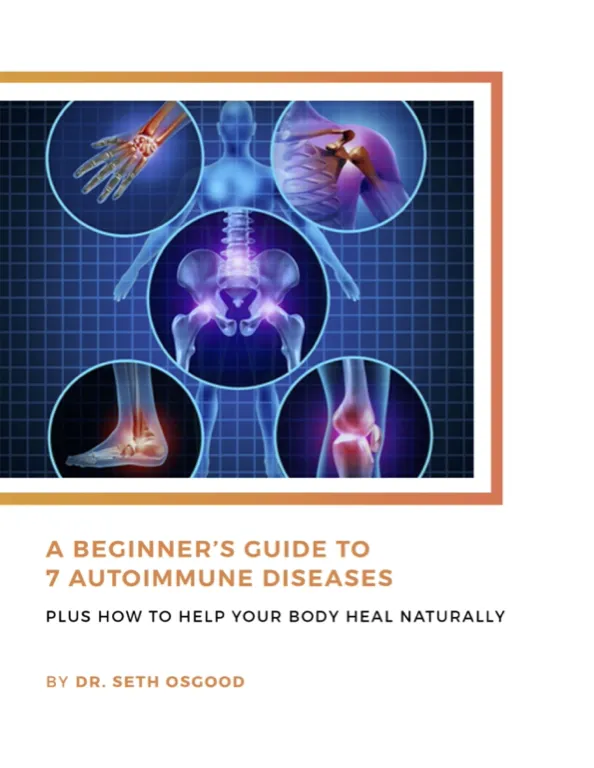Do you have trouble staying asleep at night? Maybe you wake up several times for no apparent reason. Are you a slow starter in the morning? Or maybe you get debilitating fatigue in the afternoon?
Do you get dizzy every time you change your position? Whether you’re sitting up too quickly or you’re standing up too quickly, you feel uneasy and out of balance.
Do you crave salt consistently throughout the day? Do you get headaches in the afternoon or when you’re stressed out or physically active? Maybe you have weak nails all of a sudden or your hormones are all out of balance.
If you’re suffering from any of these symptoms, it may be the result of a legitimate health issue known as adrenal dysfunction.
Meet Your Adrenals: The Anti-Stress Glands
Let’s start with what your adrenal glands are and what hormones they produce. You have two small adrenal glands sitting on top of your kidneys and their job is to produce hormones that regulate functions throughout your body.
This includes cortisol, which regulates blood sugar, inflammation, and aspects of your immune system. Your adrenal glands also produce aldosterone, which plays a role with fluid balance and regulates electrolytes like potassium and sodium. DHEA is created in your adrenal glands and modulates immune function and aspects of sex hormone production like testosterone or estrogen. Additionally, your adrenal glands produce catecholamines like epinephrine (also known as adrenaline) and norepinephrine, which stimulate the fight or flight response of your sympathetic nervous system.
They are often called the anti-stress glands because they allow your body to deal with stress, including:
- Mental or emotional stress such as from bad relationships, previous trauma, financial stress, or a stressful job
- Chemical stress from toxic exposures, inflammatory foods, or imbalances within your body
- Physical stress caused by infection, exercising too much, chronic disease, lack of sleep, etc.
What is Adrenal Fatigue?
Whenever you experience any of the stressors above, your adrenal glands start pumping out hormones to help you manage the stress. When the stressor passes, your body’s internal feedback system tells your adrenal glands to slow down, and your stress hormone levels return to normal.
This works really nicely when the stress is something like a strenuous workout. You start the workout, your adrenals ramp up the production of hormones like cortisol and adrenaline so you can power through the training session, you finish the workout, and your adrenals slow things back down.
But most of our stress doesn’t look like that. Financial stressors or worrying about your marriage don’t come in short bursts. Many people have constant low-level exposure to chemical stressors thanks to our modern environment and diets. Others are coping with a chronic illness that puts continuous strain on the body.
When we experience prolonged exposure to stressors, our adrenal glands pump out more and more anti-stress hormones and our bodies become resistant to their effects.
This requires you to produce even more cortisol and other hormones. Eventually, your adrenal glands are burned out and can no longer keep up with demand. This is when adrenal fatigue develops.
Adrenal Fatigue Triggers to Look For
Beyond the symptoms I listed at the beginning of this article, people may also suspect adrenal fatigue if they react poorly to known triggers. Oftentimes, people with adrenal fatigue need to avoid things like caffeine, alcohol, sugar, fragrances, and inflammatory foods because when they consume these foods or come into contact with these triggers, it makes them feel absolutely miserable.
The Danger of Ignoring Adrenal Fatigue
So why does this even matter? Who cares about adrenal fatigue? It matters because so many people are going to their doctors with these symptoms and they’re being ignored. They’re blown off or discounted, despite the fact that these symptoms are negatively impacting their quality of life.
People are being told by their practitioners that they’re just getting older, that nothing’s wrong. Or even worse, they’re treated with drugs for depression, chronic fatigue, or some other general diagnosis that provides absolutely no answers or solutions. This is not acceptable.
If you ignore these symptoms and don’t make the appropriate changes, not only will you continue to suffer, but it can lead to more severe problems down the road.
If you want to correct the symptoms of adrenal fatigue, you have to identify and address the driving factors. Yes, supplements can help you manage your stressors, but to find true resolution, you need to address the reason, or reasons, your symptoms are there in the first place. You need to investigate if it’s an infection, an environmental insult, an autoimmune condition, a food sensitivity, a hormonal imbalance or some other factor that is draining your adrenal bank account.
Most importantly, you need to partner with a practitioner who will listen to your story, perform appropriate testing, and give you the resources and the accountability that is necessary for healing to occur.
If you don’t do the legwork now and continue to ignore these symptoms, there is a good chance bigger problems will develop down the road — problems that are going to be much more difficult to correct and to treat successfully.
So you can push through each day struggling from minute to minute, hour to hour, barely surviving, or you can take control of your health, you can reclaim lost time, and you can go from surviving to actually thriving
About the Author: Dr. Seth Osgood is a Doctor of Nursing Practice, Board Certified Family Nurse Practitioner and Institute of Functional Medicine (IFM) Certified Practitioner. Dr. Osgood received his post-graduate training in Functional Medicine through the IFM and from working with Dr. Amy Myers. He has helped people from around the world improve their health utilizing a Functional Medicine approach.
Want to work with Dr. Osgood and the GrassRoots team? Become a patient in our West Lebanon, New Hampshire Functional Medicine clinic, our Burlington, Vermont Functional Medicine clinic, or our Austin, Texas Functional Medicine clinic!






0 Comments